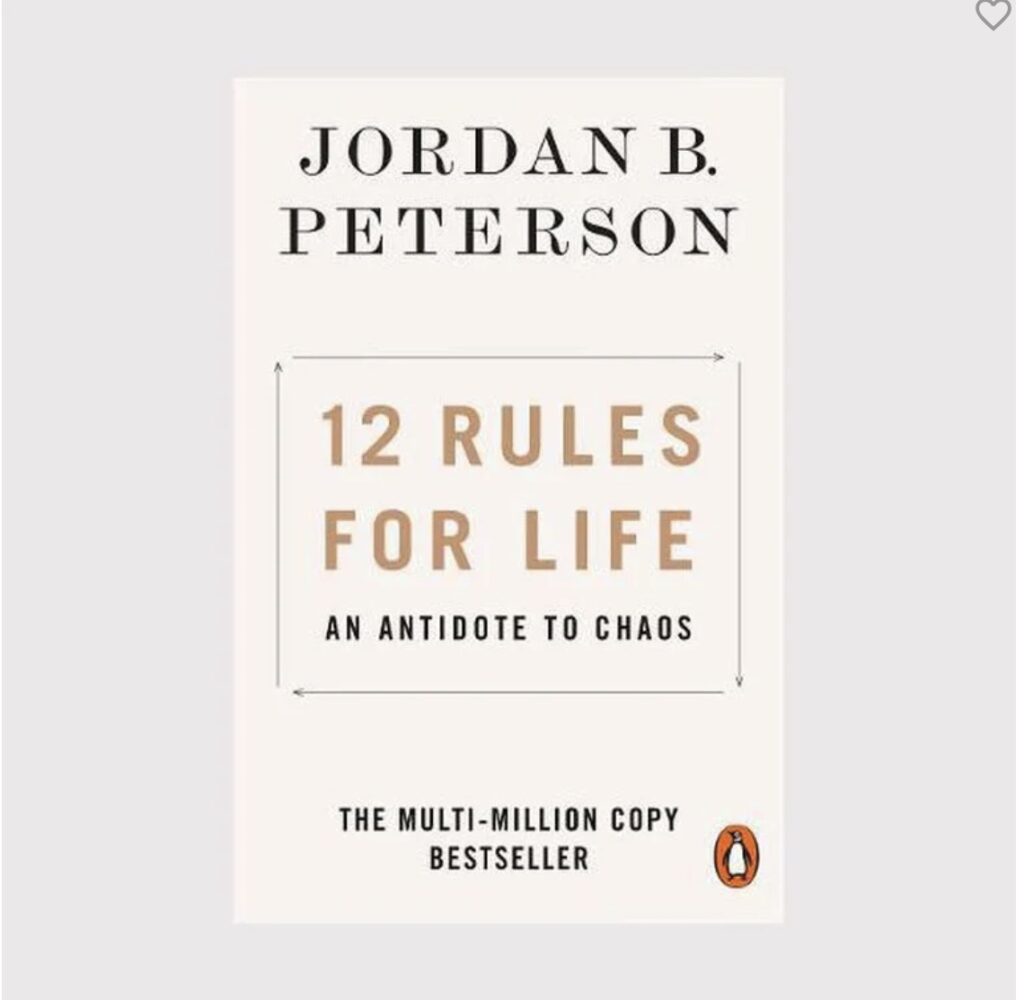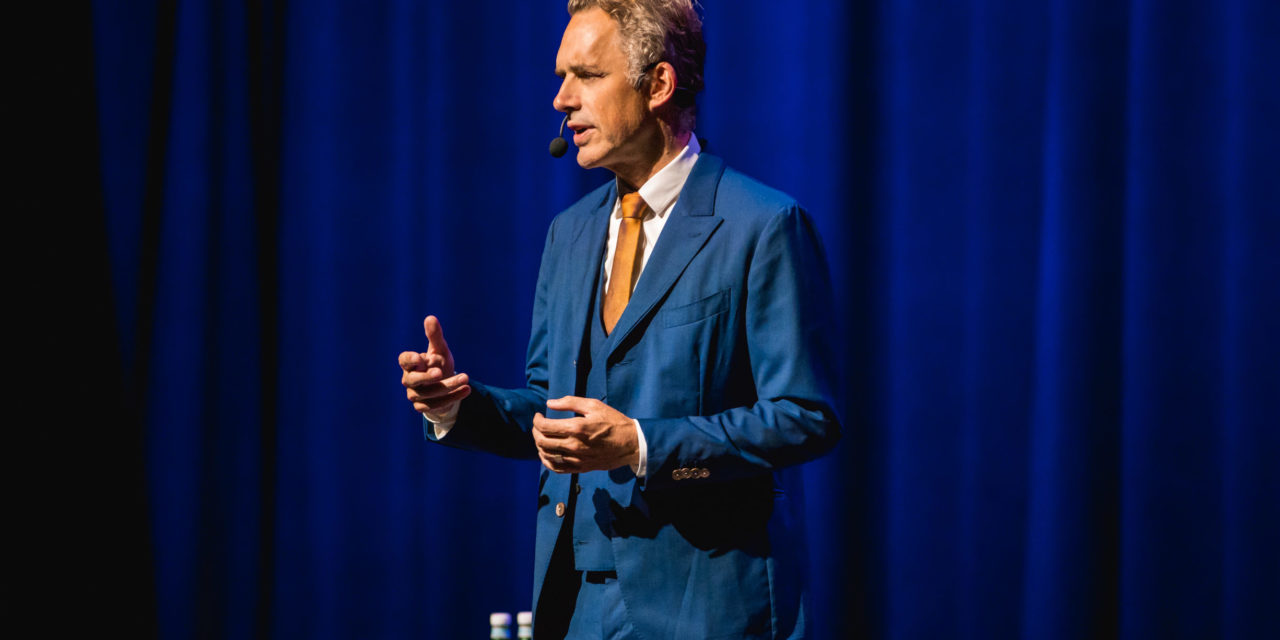To my mind, Jordan Peterson is one of just a handful of publicly courageous people alive today. He criticises diversity and equity training and defends individual rights, including free speech. He has my utmost admiration. He is a very, very good man.
This is not to say that I agree with everything he says. It’s unlikely any thinking person would. Our lives are a journey, and healthy debate nudges our direction along the way.
Peterson has attracted a worldwide following (and media denigration) simply because he champions individual choice. The antithesis of the collective brainwashing of the last few years has seen him reject the concepts of white privilege, the gender pay gap and the enforced use of gender pronouns. His crime is that he encourages others to follow suit.
Three years ago Peterson spoke in Hungary, bared his soul and revealed his optimism for the future of 21st-century mankind despite personal setbacks which he unflinchingly reveals in order to empathise with the downtrodden.
Peterson inspires because he offers hope.
He says we must choose the good and right path and we must aim high if we want the best for ourselves and our families, and I couldn’t agree more.
“These things don’t come upon you in great waves. They come upon you in small moral decisions that you’re constantly making and it’s upon you to be awake – awake – and to see that you’re staying on the proper track.”
YouTube Jordan Peterson’s Secret to Overcoming Chaos Within Yourself (19 minutes in)
The last few years have treated him cruelly, Peterson’s frailty was palpable when he addressed the predominantly youthful Hungarian crowd who hung onto every word with religious fervour.
Peterson knows life is not easy and hard decisions must be made.
In 2020 he struggled with depression and mental illness after his wife Tammy was diagnosed with a rare form of kidney cancer.
“…he was prescribed sedatives to calm his anxiety, only to find himself dependent — and experiencing the horrifying side effect known as akathisia, which causes an inability to stop moving along with a sense of doom, panic and suicidal thoughts.”
New York Post
It took more than a year for him to recover, emerging battered and bruised, admitting his own propensity for evil with heartbreaking honesty. A lesser man would have retreated from the inevitable media opprobrium, but not Peterson.
Heeding the advice he gives others, he does not hide his imperfections, instead laying them out publicly, claiming the dark side of his nature can be “straightened out” by the knowledge of good. It’s a huge burden and little wonder he is ravaged just talking about it, and yet he does so to offer hope.
“I am hoping that we wake up, that we don’t repeat the crimes of the 20th century, and that we move properly into a future that’s better – and better for all of us. And I do believe that not only can we do this, but it’s actually happening.”
YouTube Jordan Peterson’s Secret to Overcoming Chaos Within Yourself (21 minutes in)
Removed from the Covid debate over the last few years, not by personal choice but by health issues, I am not sure Peterson would repeat the claim of a better future in 2023 given the uncertain outcomes of the Covidians.
Peterson idolised Carl Jung who was an early supporter of Freud through their shared interest in the effects of the unconscious in the human mind.
When the International Psychoanalytical Association formed in 1910 Jung became president at the request of Freud.

However in 1912 while on a lecture tour of America Jung publicly criticized Freud’s theory of the Oedipus complex and his emphasis on infantile sexuality. The following year this led to an irrevocable split between them and Jung went on to develop his own version of psychoanalytic theory.
Most of Jung’s assumptions of his analytical psychology reflect his theoretical differences with Freud. For example, while Jung agreed with Freud that a person’s past and childhood experiences determined future behavior, he also believed that we are shaped by our future (aspirations) too.”
Simply Psychology
Peterson embraced Jung’s theory of pinning hope on our aspirations, claiming we are masters of our own destiny, that we control our future. This makes him popular with young people, and for them Peterson wrote his 12 Rules For Successful Life and the follow up Beyond Order – 12 More Rules For Life.

Peterson says that hope for a better future is found in the unconscious world within us.
This is precisely the point where I part company with Peterson, over what is the source of our redemption. Peterson says redemption is found within himself, but I say redemption is found outside myself.
My unconscious world is the spiritual world of the Bible that exists outside myself, invisible and unseen by the human eye.
Just as Peterson cannot prove the existence of the psychological construct of aspirations that he encourages us to explore; neither can I prove the existence of the hidden world of the Holy Spirit. Both are a matter of faith.
But on the nature of man, Peterson and I are in total agreement. The struggle to do better, the desire to aim higher, to strive to overcome the innate human frailties causing poor life choices and keeping us from performing better, is very real indeed.
Peterson says you have to ignore history to believe differently about mankind’s inherent evil. He is honest about his need for redemption, my life view sees him in the same position as Adam and Eve who chose the knowledge of good and evil at the cost of forgoing a personal relationship with their creator.
My unseen world is the spiritual kingdom of God, Peterson’s unseen world is tapping into the unconscious mind.
Sure, I can try to do better, as Peterson encourages, but quite honestly it’s a gruelling way to live. Peterson is a testament to that, valuing his hellish journey through addiction to prescription drugs like gold, claiming it as a learning experience, despite the pain etched on his face.
“The information in our experience is latent, like gold in ore….It must be extracted and refined with great effort, and often in collaboration with other people, before it can be employed to improve the present and the future. We use our past effectively when it helps us repeat desirable—and avoid repeating undesirable—experiences. We want to know what happened but, more importantly, we want to know why. Why is wisdom. Why enables us to avoid making the same mistake again and again, and if we are fortunate helps us repeat our successes.”
Madinamerica.com
My source of strength is found outside myself. It is a gift from the creator.
“You Lord are forgiving and good, abounding in love to all who call to you” Psalm 86:5.
“If we confess our sins He is faithful and just to forgive us our sins and to cleanse us from all unrighteousness” I John 1:9.
“But he [the Lord] said to me, “My grace is sufficient for you, for my power is made perfect in weakness. Therefore I will boast all the more gladly about my weaknesses, so that Christ’s power may rest on me.” 2 Corinthians 12:9.
Jordan Peterson and I are on the same road to redemption and despite our different paths I salute his courage and support him as he faces his latest attacks.
The famed psychologist and scholar, and global media personality, Jordan Peterson is being told that he must report to the Ontario College of Psychologists for re-education or else lose his license to practice. He is challenging the order in court, for whatever that’s worth.
Brownstown “Jordan Peterson: Enemy of the State.”

